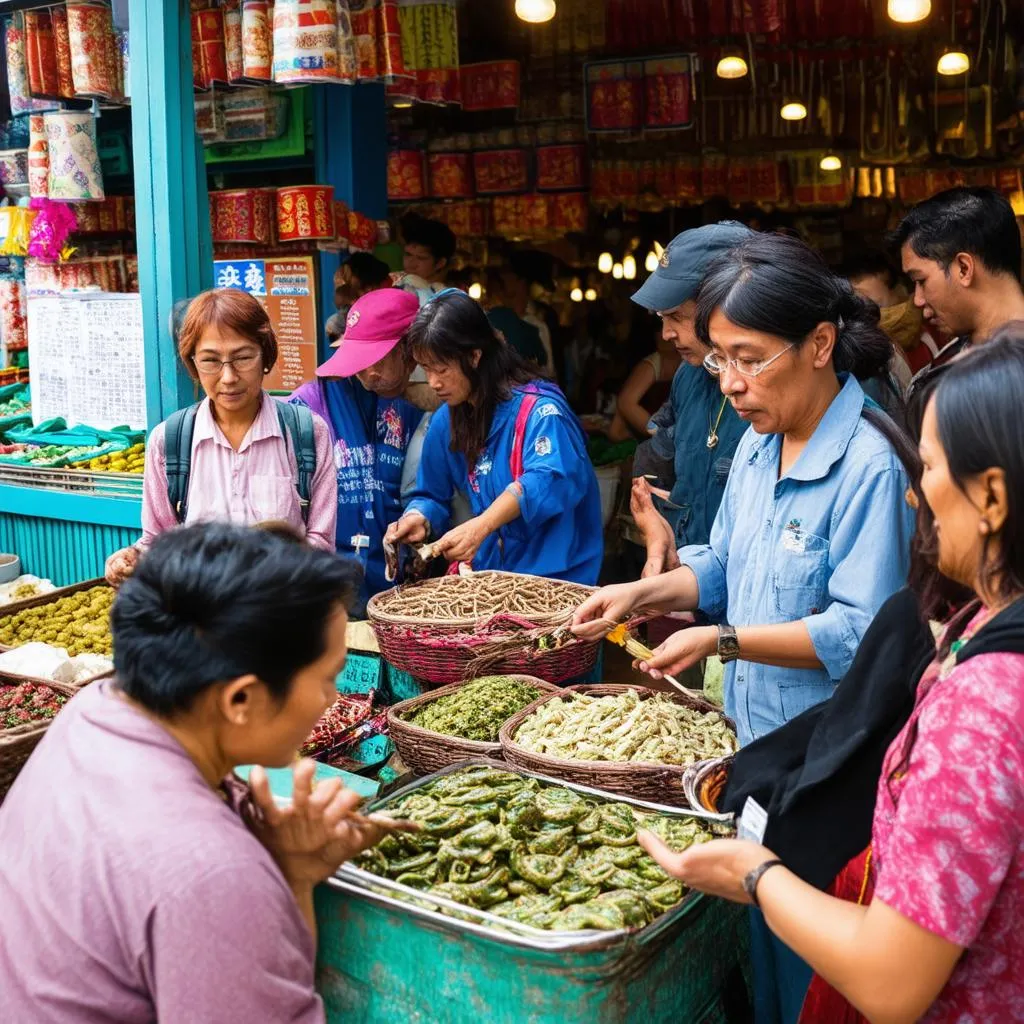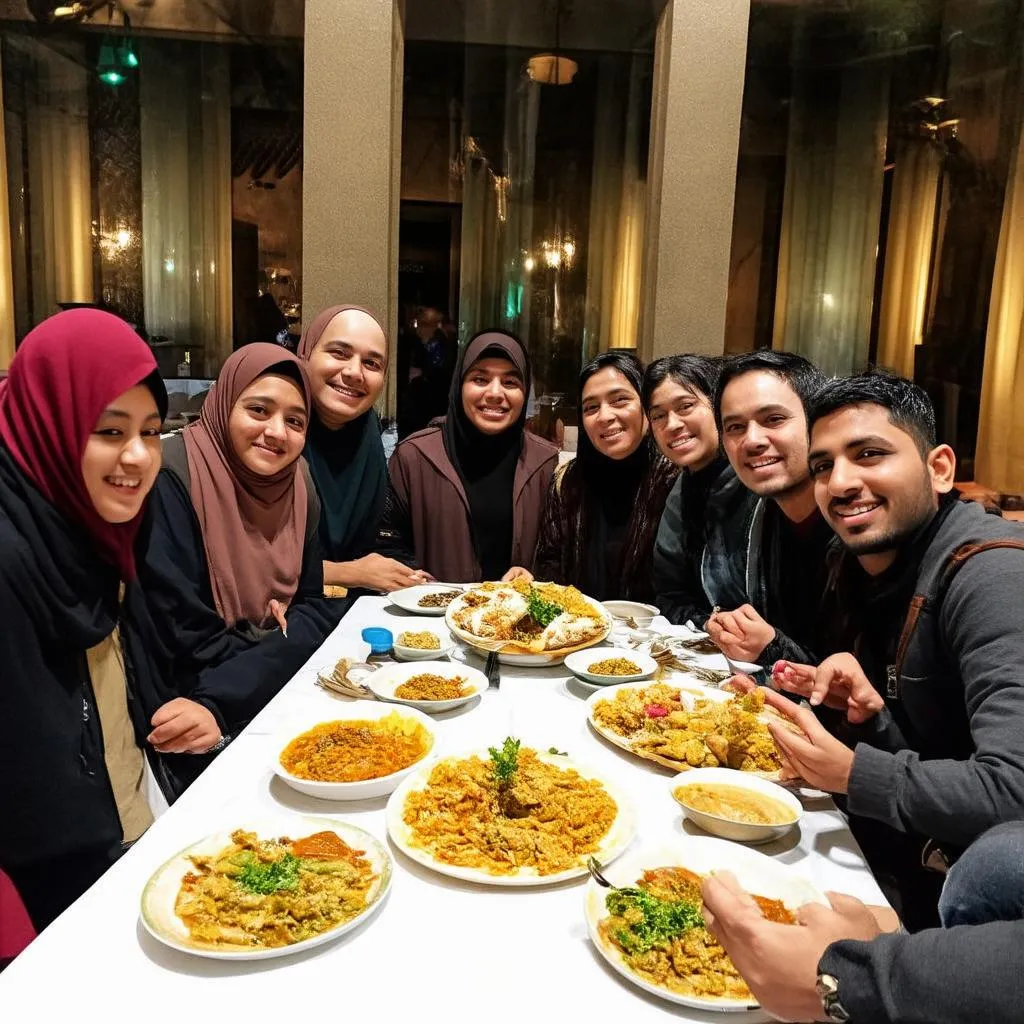“The world is a book and those who do not travel read only one page.” – Saint Augustine. This quote perfectly captures the essence of travel – the exploration of new cultures, experiences, and of course, food! But what happens when travel intersects with religious practices like fasting? Do Travelers Have To Fast?
This question often pops up, especially for those planning trips during Ramadan or other religious periods. Let’s unpack this complex topic, addressing cultural sensitivity and dietary needs while respecting individual beliefs.
Understanding Fasting in Different Cultures and Religions
Fasting takes on various forms across the globe, often tied to religious observance, cultural traditions, or personal reasons. For instance:
- Ramadan: Muslims worldwide observe Ramadan, a month of fasting from dawn to dusk. This period signifies spiritual reflection and devotion.
- Lent: Christians, particularly Catholics, often fast during Lent, abstaining from certain foods or meals as a form of penance and reflection.
- Yom Kippur: Jewish individuals observe Yom Kippur, a day of atonement, with a complete fast.
- Intermittent Fasting: This practice, gaining popularity for potential health benefits, involves cycling between periods of eating and voluntary fasting.
 Respecting Local Customs
Respecting Local Customs
Do Travelers Have To Fast?
The simple answer is: it depends. There’s no universal rule. Here’s a breakdown:
Respecting Religious Obligations and Personal Choices
- Personal Decision: Ultimately, the decision to fast while traveling rests upon the individual and their personal beliefs.
- Religious Exemption: Most religions offer exemptions from fasting during travel, illness, or other extenuating circumstances. Consult with a religious leader for guidance.
Balancing Travel Demands and Fasting Practices
- Planning is Key: If you choose to fast while traveling, plan your itinerary accordingly. Consider adjusting activity levels, especially during peak heat hours.
- Hydration is Crucial: Staying hydrated is paramount, particularly in hot climates. Consume plenty of fluids during non-fasting hours.
- Communicate Your Needs: Inform travel providers, hotels, and tour operators about your fasting practices to ensure they can accommodate your dietary requirements.
Tips for Travelers Who Fast
- Research Local Customs: Before you travel, familiarize yourself with local customs and traditions related to fasting. For example, during Ramadan, many Muslim-majority countries adjust business hours and offer special meals for breaking the fast (Iftar).
- Pack Snacks: Carry nutritious snacks like nuts, dates, or energy bars to consume discreetly during non-fasting hours, especially during long journeys.
- Listen to Your Body: Pay close attention to your body’s signals. If you experience any discomfort or health concerns related to fasting, consult a medical professional.
 Travelers Enjoying Iftar Meal
Travelers Enjoying Iftar Meal
Navigating Cultural Sensitivity
- Be Respectful: Regardless of your personal beliefs, always approach cultural and religious practices with respect and understanding.
- Avoid Judgment: Refrain from making comments or judgments about others’ choices regarding fasting.
- Embrace Learning: Use travel as an opportunity to learn about different cultures and perspectives, fostering greater tolerance and empathy.
Travelcar.edu.vn: Your Travel Companion
For comprehensive travel guides, tips, and resources, visit travelcar.edu.vn. We offer insights into various destinations, helping you plan a respectful and enriching travel experience.
Conclusion
While the decision to fast while traveling is personal, respecting local customs and understanding religious practices is crucial for a harmonious experience. Whether you’re exploring the bustling streets of Marrakech during Ramadan or visiting the Vatican City during Lent, approach each journey with an open mind and a spirit of cultural sensitivity. Remember, travel is about embracing the world in all its diversity, respecting traditions while tending to your well-being.